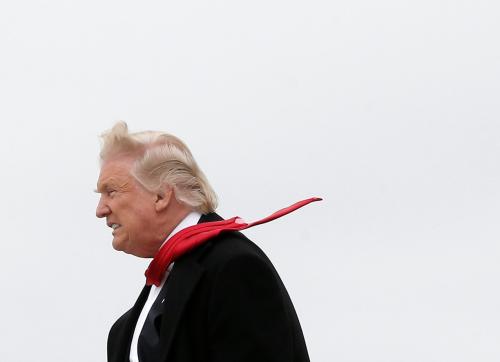On a frigid morning on January 20, 2009, I attended Barack Obama’s inauguration as President on the steps of the Capitol building in Washington, DC. A few hours before Obama laid his hand on Abraham Lincoln’s Bible to take the oath of office, I looked up to see a bald eagle — America’s national symbol — soaring and swooping over the Capitol dome. When I pointed this out to a Republican lady standing beside me, she told me bluntly this was no heavenly sign, but an eagle trained by the Obama campaign to attract positive media attention.
I do not believe that it was a trained eagle. But, in a larger sense, my interlocutor was correct.
The presidential campaign run by Obama and his team was marked by discipline, effectiveness and a laser-like approach to self-interest. No wonder Republicans suspected the eagle over the Capitol was a brilliant campaign move.
The same qualities have been apparent in Obama’s foreign policy. He has governed as a cautious realist, focused principally on the US’s national interests. He has also exhibited a consistent willingness to use force, sometimes unilaterally.
Unusually for a Democrat, Obama is regarded as strong on national security, and has a substantial opinion poll lead over Mitt Romney when it comes to foreign policy.
It is harder to make judgments about Romney’s foreign policy. He has never been a foreign policymaker and he has not said much on the topic during the campaign: according to his advisers, he does not want to engage on the issue. His few statements on the topic have been clumsy.
Like Obama in 2008, Romney this year is a foreign policy “puzzle”. His rhetoric is very conservative, but it is hard to believe he means it. If he were to win the White House, I suspect Romney would be a cautious, technocratic realist with some marked similarities to Obama. As Romney said in his speech at The Citadel in Charleston in South Carolina last October: “Our next president will face many difficult and complex foreign policy decisions. Few will be black and white.”
In many of the areas that matter to Australia, there are strong continuities between the two candidates’ foreign policies. One such issue is their treatment of alliances. Early in his national career, Obama was not especially alliance-focused: former ambassador to the UNJohn Bolton even charged that he had “a post-alliance policy”. In office, however, Obama has been well-disposed towards alliances. In the Libyan case, the opposite charge is levelled: that he ceded too much ground to allies, by allowing Britain, France and other NATO allies to take a lead.
Romney is likely to be more focused on allies than Obama. He probably takes more of a “band of brothers” approach to allies. Like John McCain, he may incline towards the notion of the “Anglosphere”. If there is a difference, it may be that Obama is more willing to cede the main game in some future operations to US allies, as he did in Libya.
Perhaps Romney would be more alliance-focused, but also more determined to take the leading role in alliance operations. But there is not a binary difference between the two. Their policies are similar in relation to the pivot towards Asia. Obama believes the US has been overly invested in the Middle East and under-invested in Asia, where future challenges and opportunities exist.
The elements of his rebalancing include more regular attendance at meetings of the various Asian multilateral organisations, the deployment of US Marines to Darwin, increased ship visits to Singapore and closer military ties with The Philippines. There are many questions about the pivot, but it makes strategic sense, so it is hard to see Romney unpicking it. If anything, he would reinforce it.
Obama has been an enthusiast about Washington’s Asian alliances. He has visited three Asian treaty allies — Japan, South Korea and Australia — and he helped get the South Korean free-trade agreement through congress.
When it comes to the US-Australia alliance, it is difficult to imagine the two men would treat it in notably different ways. Obama has formed good personal ties with Kevin Rudd and Julia Gillard, and he elected to give his principal speech on the pivot to the Australian parliament in Canberra.
Romney’s connections with Australia are not known, although some of his advisers, such as former World Bank president Bob Zoellick and former State Department director of policy planning Mitchell Reiss are long-term friends of Australia. In his book No Apology, Romney listed Australians along with Canadians, Britons, Poles and Czechs as peoples who “engage wherever freedom needs defenders”.
One might imagine that an Obama-Gillard axis or a Romney-Abbott axis would be a better fit than Obama-Abbott or Romney-Gillard. The truth is that whichever combination of political leadership clicks into place, the alliance will be secure. There is a deep alliance at work here, driven by institutionalised bureaucratic, military and intelligence co-operation, that grinds on regardless of the personalities of the political leaders at the summit.
There are, of course, many differences between the two men on foreign policy. Obama is now an experienced and effective commander-in-chief; Romney is a foreign-policy novice. On specific issues such as Russia, Israel and the UN, the two candidates have carved out different approaches. It seems likely that Romney would be prepared to push harder and take greater risks in the cause of free trade than Obama.
Nevertheless, on most foreign issues the similarities are more striking than any differences.
The choice that Americans make next month will be felt in Australia, but any change will feel more like a ripple than a tsunami.
The Brookings Institution is committed to quality, independence, and impact.
We are supported by a diverse array of funders. In line with our values and policies, each Brookings publication represents the sole views of its author(s).



Commentary
Op-edWhere the Eagle Lands Is Neither Here Nor There
October 10, 2012